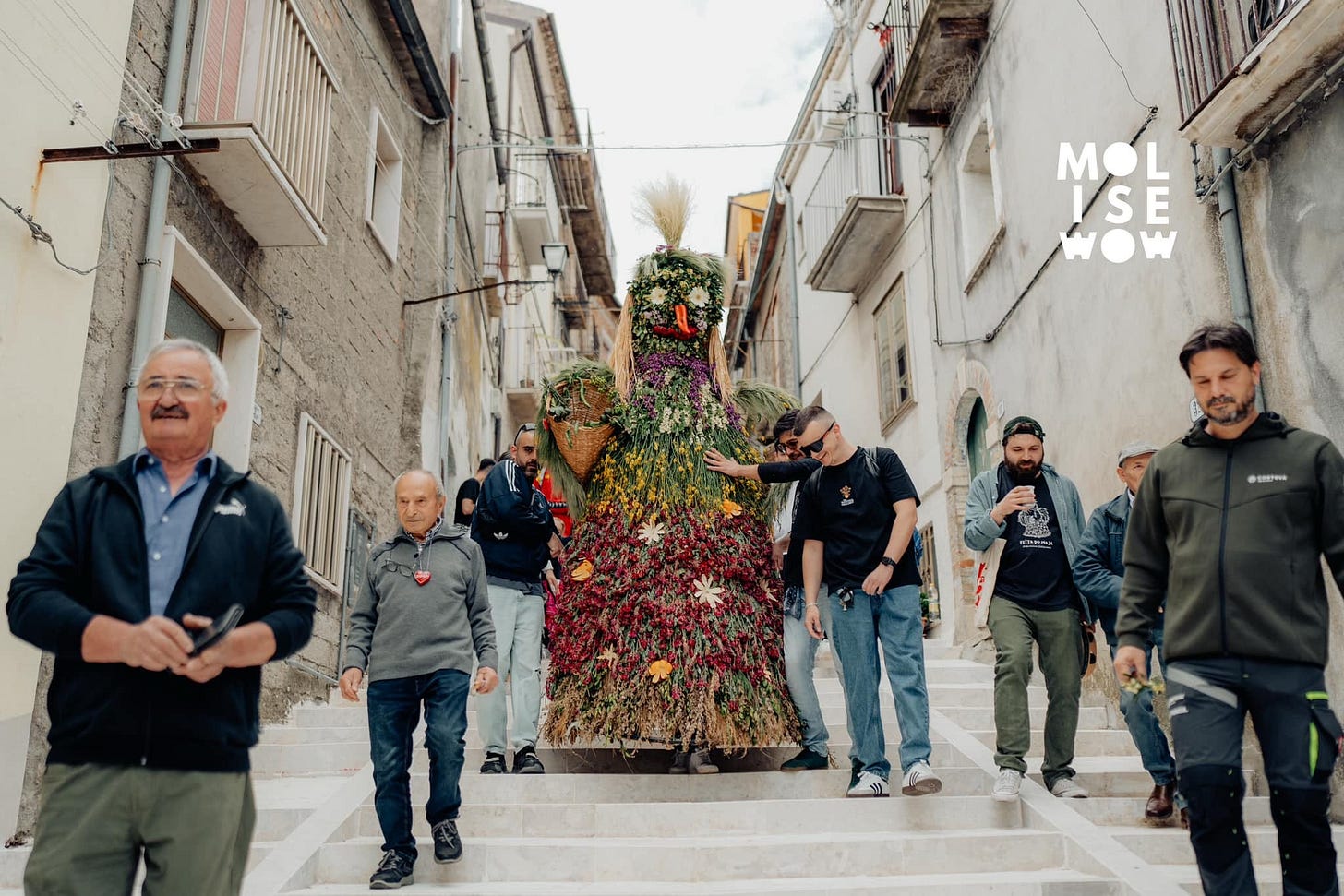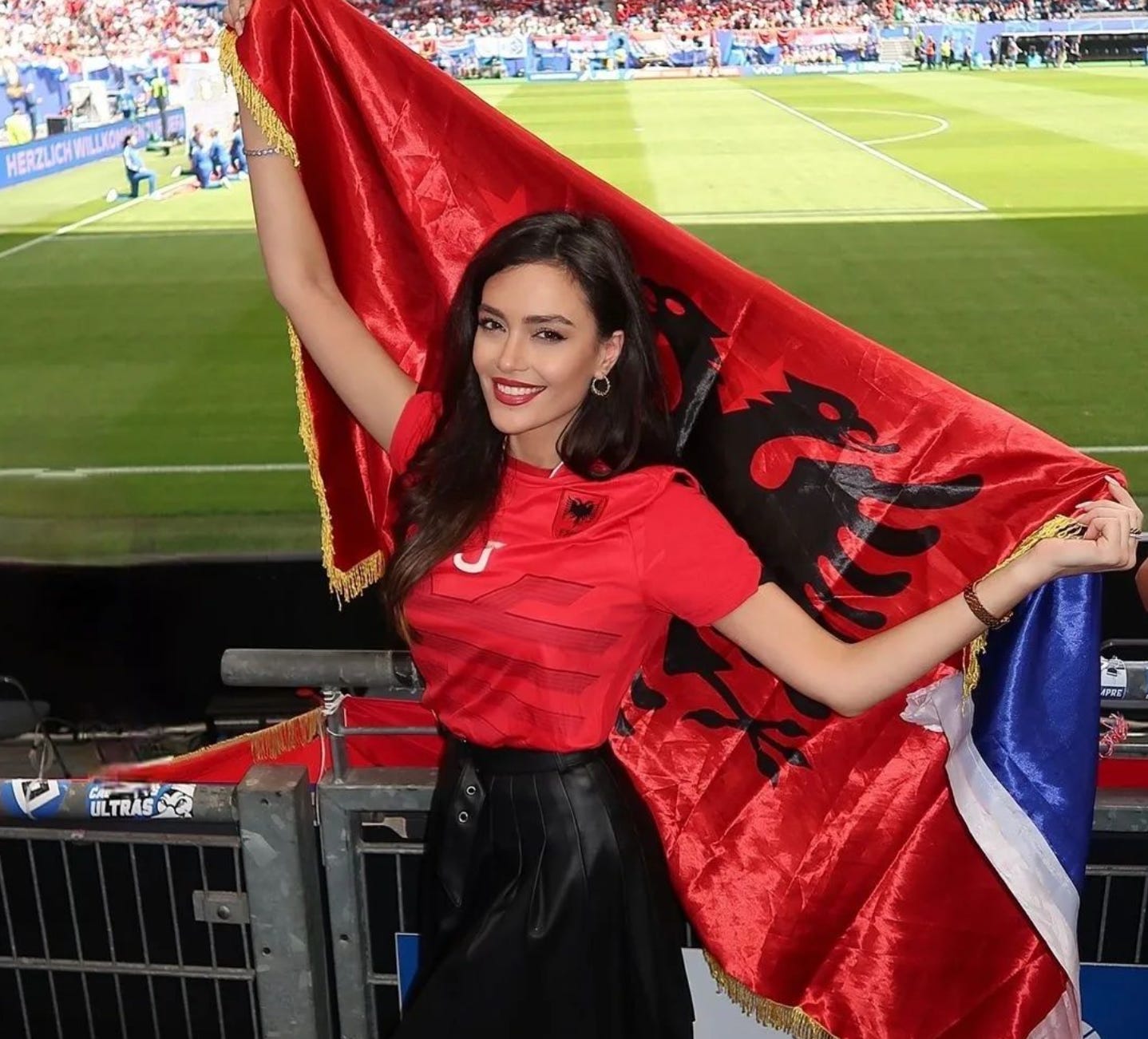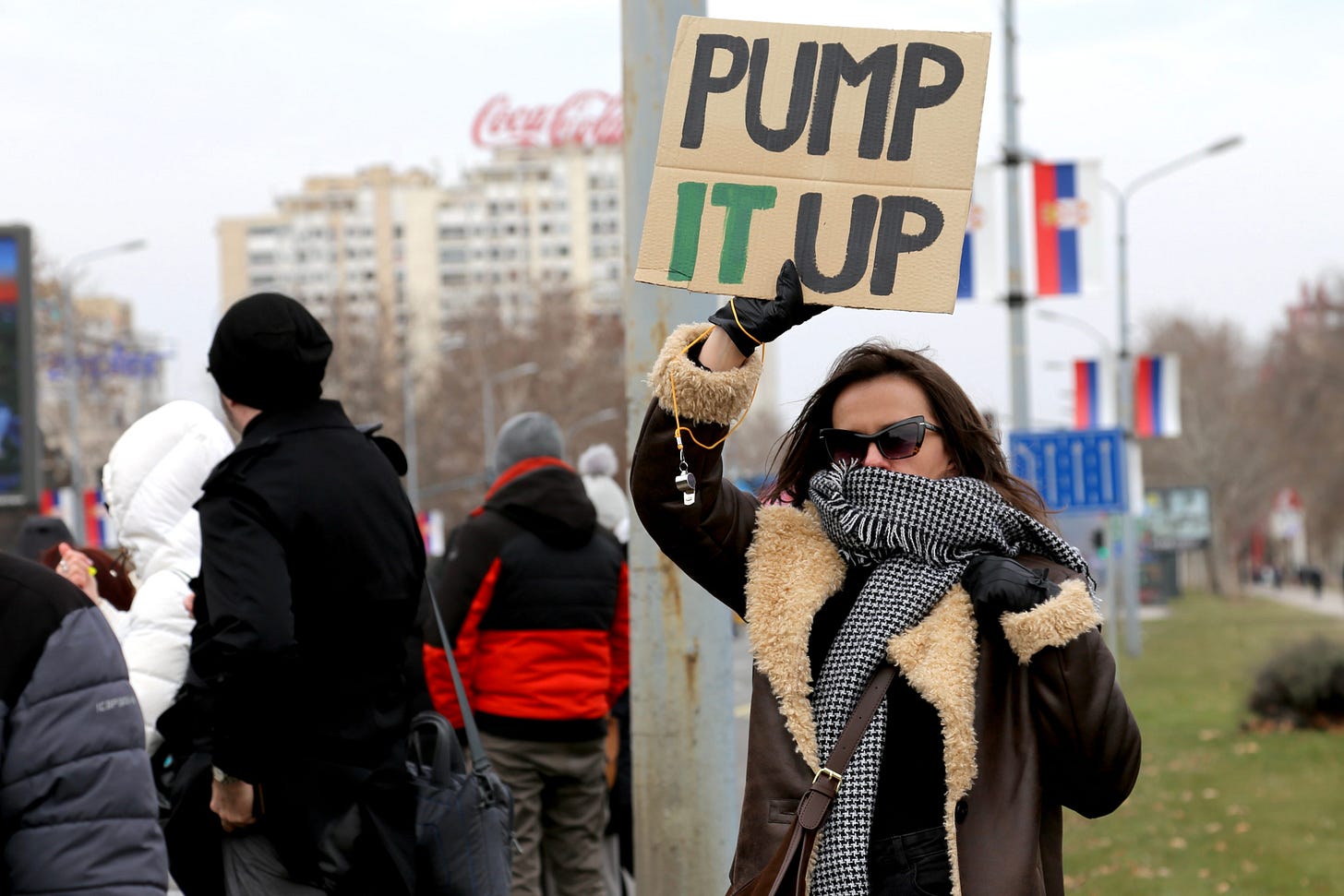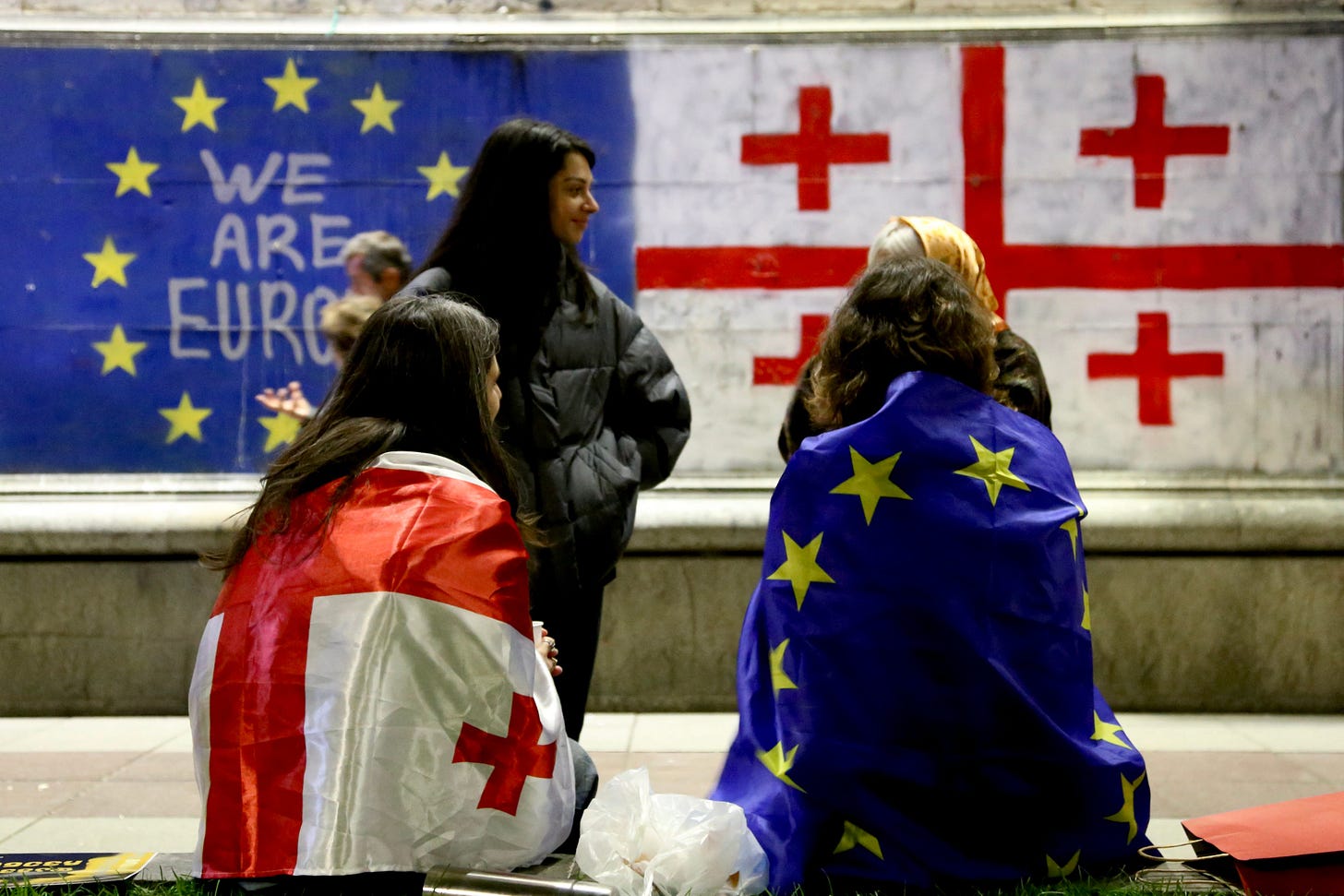S5E22. Five years time
BarBalkans' fifth year comes to an end. A season in which this newsletter became part of a broader project, while remaining open, accessible, and reliable at all times. Let's take a look back together
Dear reader,
welcome back to BarBalkans, the newsletter with blurred boundaries.
As with every year, mid-June offers us a moment to reflect on the season we have shared.
Whether you have been with us from the beginning or have only recently joined, we are brought together by a common conviction: that the Balkan region deserves a narrative free from stereotypes. And that we value spaces that are open, inclusive, and free from prejudice.
Today marks the end of the fifth season of this newsletter—a season shaped by a major change.
In January, BarBalkans became part of a new editorial project: The New Union Post, an online magazine dedicated to the European Union’s enlargement process and the countries aspiring to join.
As part of this broader project, BarBalkans now serves as the thematic newsletter focused on the Western Balkans. The wider aim is to develop The New Union Post into a fully independent news platform in the near future.
Before we dive into the summary of the fifth season, I would like to remind you that you can play a vital role in keeping this project alive.
Independent journalism like ours depends on the support of its readers — not just to exist, but to grow.
Your support helps us to write, research, conduct interviews, and travel across the region for field reporting. Most importantly, it allows us to continue publishing original, high-quality content that remains free and accessible to all.
If you would like to support The New Union Post and its newsletter BarBalkans, you can buy us a coffee for just €1 whenever you like, or choose to become a member with a monthly contribution of €5 or €10.
Visit buymeacoffee.com/newunionpost to find out how you can help.
While BarBalkans newsletter will remain free—ensuring that anyone who wants and feels the need to stay informed can do so—there is another way to support the project.
By subscribing to BarBalkans (you can sign up here), you will gain monthly access to exclusive content: The Yugoslav Wars, a series that revisits the events that unfolded in the Balkans exactly 30 years ago, month by month.
Published every second Wednesday, this series acts as a time machine, offering a deeper understanding of subjects often mentioned but seldom fully explored.
The monthly podcast highlighting the main points is open to everyone (available on Spreaker, Spotify, and all major streaming platforms), while the in-depth article is reserved for subscribers.
You can listen to and read the latest episode here:
Regardless of what you decide, thank you.
From the beginning
Today’s stop is a recap of what happened during this season of BarBalkans, and a chance for the most recent of our 956 subscribers to catch up on the journey so far.
Once again, we kicked off BarBalkans’ journey with an interview featuring the winner of the second edition of Balkan Playoff—the semi-serious summer contest hosted on Instagram. This time, our guest was Eva Murati, an Albanian presenter and model well known across Europe.
Staying with Albania, shortly after the 2024 Paris Olympics, we explored the story behind the country’s first Olympic medals—won by two recently naturalised Russian wrestlers—and the controversial national sports policy.
The parliamentary elections held on 11 May 2025 also marked a historic moment, as the Albanian diaspora was able to vote for the first time. For many people born or raised in other European countries, this represented their first ever experience of casting a ballot.
Serbia has also been high on our radar this season. We began by looking into the latest developments surrounding the Jadar lithium mine project, before turning our attention to the mass protests against President Aleksandar Vučić’s regime.
Srđan Majstorović, Chair of the Board of the European Policy Centre (CEP), helped us understand the roots and significance of the growing anti-corruption movement. Then, from the streets of Belgrade, we shared the voices of Serbian students—determined not to give up the fight for the rule of law.
The political landscape across the Balkans was shaken on 5 November 2024 by the news of Donald Trump’s return to the White House—a development that raised fears of emboldened nationalist leaders in the region, renewed instability, and the rise of murky economic interests.
Nationalist rhetoric has been gaining ground on several fronts. In North Macedonia, a newly elected right-wing government has aligned itself with Hellenistic symbolism, for reasons that extend beyond architecture. In Republika Srpska, President Milorad Dodik faces an arrest warrant over attempted secession from Bosnia and Herzegovina.
The shadow of lithium also looms over the Serbian entity of Bosnia and Herzegovina. Just as in Serbia, residents of the Majevica massif are resisting economic and geopolitical pressures to open a new mine in the heart of a protected natural park.
To underscore the power of civic mobilisation in resisting authoritarian drift, we travelled to Tbilisi. While Georgia is not part of the Balkans, the ongoing protests against electoral fraud in the 26 October 2024 elections offer an important lesson for all countries aspiring to join the European Union.
In Brussels, these complex challenges now fall to Marta Kos—the first European Commissioner for Enlargement from a former Yugoslav country. Her mandate will be a difficult one, for many reasons.
When it comes to upholding its founding values — particularly in the area of migration — the European Union is falling short of setting a meaningful example. As explained by Fatmire Haliti, Lawyer and Program Manager at the Kosova Rehabilitation Center for Torture Victims (KRCT), Denmark is outsourcing the detention of foreign nationals to Kosovo, in a move that risks becoming a precedent for the EU’s future return policy.
Yet, amid widespread public indifference and increasingly discriminatory policies, some continue to resist. Amaro Nziria is the driving force behind Spiriti Resistenti, a project that supports families and communities searching for people who disappeared along migration routes, from Central America to the Balkans.
One of the most compelling strands of this year’s coverage has been the exploration of forgotten stories from Yugoslavia. From naturist tourism to the Yugo—once dubbed “the worst car in history”, but far from deserving that title, as explained by Jovana Ninković, founder of Yugoverse project.
Looking further back to the Second World War, we uncovered the key role played by Yugoslav partisans in the Italian Resistance, as well as the early glimpse of a future socialist federation that emerged in the El Shatt refugee camp in Egypt.
And finally, a hidden gem. Every 1 May, the Italian village of Acquaviva Collecroce celebrates the Feast of Maja with a colourful parade featuring a flower-covered anthropomorphic puppet—an ancient tradition of the Molise Croat community, just waiting to be rediscovered!

This is the very end of BarBalkans’ fifth season. Thanks again. For your patience, your time, your curiosity, your trust.
And now, let’s continue our journey. See you in a few weeks with the beginning of a new year together.
A big hug and have a good journey!
Discover Pomegranates, the newsletter on Armenia and Georgia’s European path powered by The New Union Post
If you no longer wish to receive all BarBalkans newsletters, you can manage your preferences through Account settings. There is no need to unsubscribe from all the newsletters, just choose the products you prefer!









